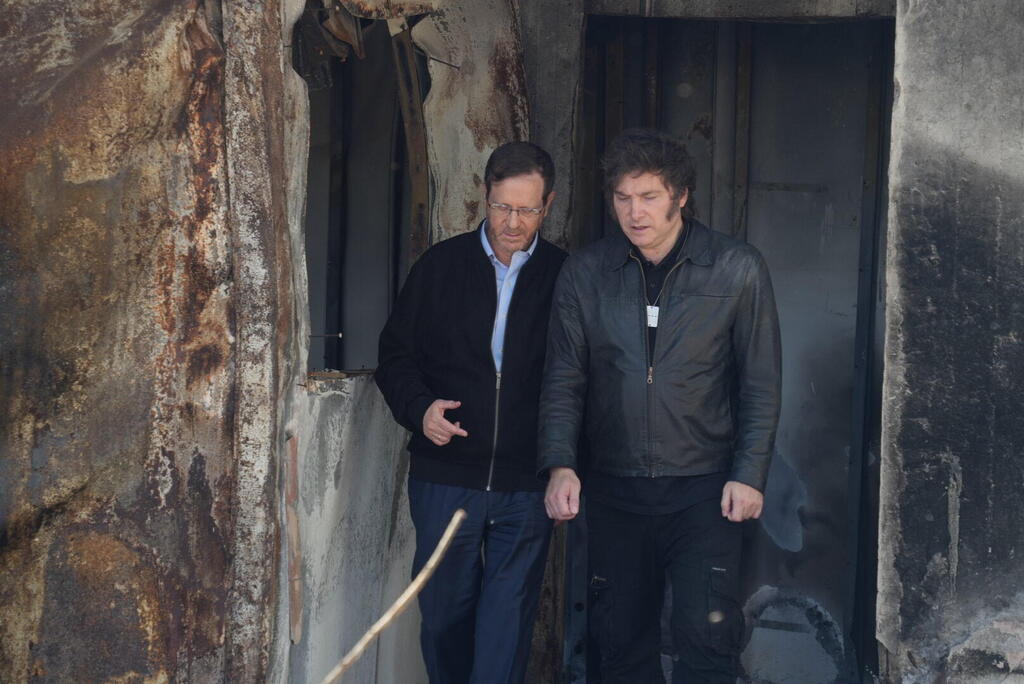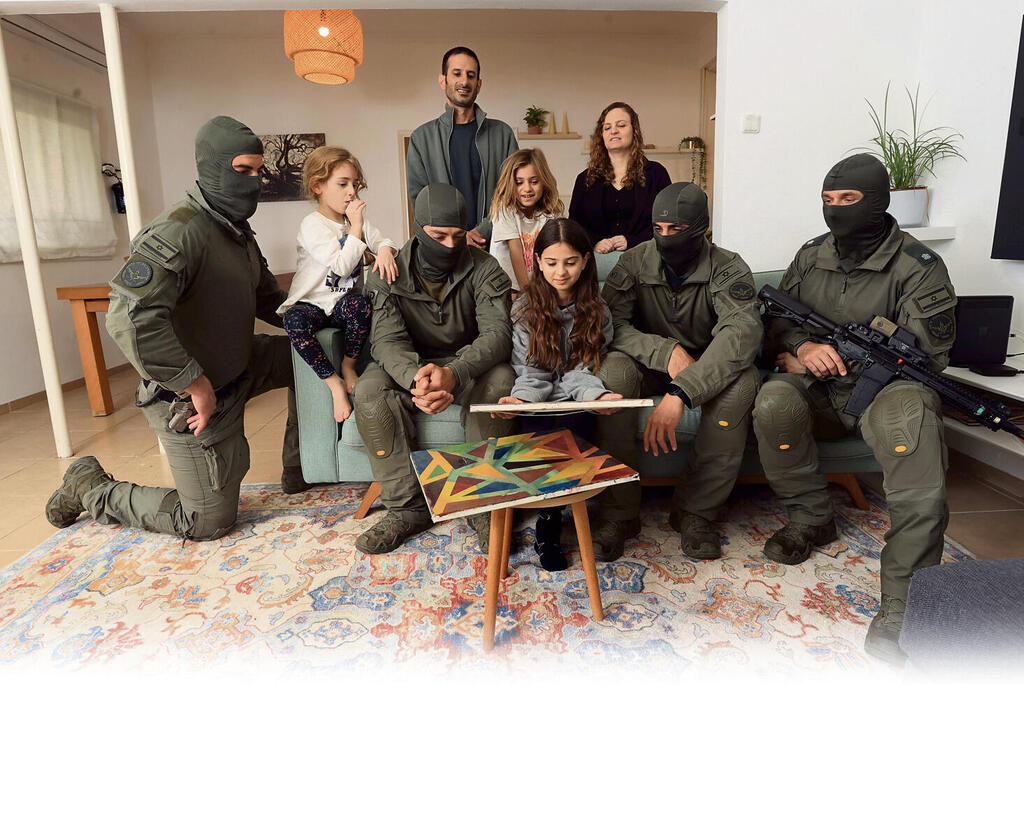The four daughters of the Maor family didn't attend school on Sunday but fear not. They had a great reason. Eden, 14, Tamar, 11, Naomi, 9, and Yasmin Nina, 6, remained at their temporary home in the northern town of Binyamina, eagerly awaiting the arrival of the people who had come to their rescue in Kibbutz Nir Oz on October 7 - the undercover unit of the Border Police's Tactical Division.
Six months after their picture was featured on the cover of Ynet's sister publication Yedioth Ahronoth, the Maor family resides in a house they rented three months ago, far from Nir Oz and far from the house that their father, Yaron, built with his own hands, of which nothing remains but memories.
"I would describe the past six months as a survival period," says the girls' mother, Leigh. "The girls are the reason I wake up in the morning. My father and uncle are held captive in Gaza. My friends were murdered, and others were kidnapped."
During the meeting, Yaron had to take a leave to attend the funeral of Elad Katzir, a Kibbutz member, whose body was returned to Israel three days prior in a military operation.
Upon the arrival of the undercover agents, the excitement was palpable. They shook hands with Leigh and Yaron and didn't overlook the girls, and everyone recollected their first encounter.
Superintendent A., commander of the Tactical Division's undercover unit, recalls, "When we arrived at the family's house, after witnessing all the scenes in the kibbutz, we saw a man with a gun in his hand, all flustered and sweating, standing next to a woman and three girls. Half a second separated the father from a bullet to the head from one of us. I am grateful that I did not have to explain to the family that I killed him because we thought he had kidnapped them."
"It was after hours of engaging in a relentless fighting against the terrorists who threw grenades into the house and fired ceaselessly," says Yaron. "I neutralized two terrorists who attempted to infiltrate. Then, I already started encountering death from our own fighters. I shouted 'Shema Yisrael', but even that didn't help."
"We knew that the terrorists arrived prepared and were shouting 'Shema Yisrael'", one of the fighters explains, and he vividly recalls the moment, still fresh in his memory, when he already began to pull the trigger. "One of the girls screamed 'Dad!' and that's when I realized it was real."
2 View gallery


President Herzog and Argentinean President Milei tour Nir Oz
(Photo: Tomer Shunem Halevi)
"Just to think about Yaron's bravery, who with a gun and two magazines rescued his family from the terrorists, only to then take a bullet in the head from one of us," says Superintendent A. "Despite everything he endured, he led us to families who were isolated when there was still fear terrorists were lurking around."
The scenes were intolerable: bodies on the kibbutz roads, burnt houses with no one left inside. The eldest daughter, Eden, was in the safe room with her grandmother and was rescued by her father and the undercover agents. "We evacuated at least 40 kibbutz residents from their homes to a safe place," says the squad commander.
They arrived at their house in Binyamina after wandering between the hotel they were evacuated to in Eilat and an apartment with relatives in Kibbutz Ma'agan Michael, just north of Caesarea. "We looked for a private house to give the girls a sense of what they had in the kibbutz, of space, freedom and land," they explain. "We were born in the Gaza border region, we never lived in an apartment building or experienced traffic jams or anything that exists in the city. We are used to freedom."
Six months after that horrific Saturday, Yaron and Leigh are still fighting the bureaucracy that drains the little mental strength they have left. "I haven't returned to work," says Leigh, a social worker who worked in Netivot. "I don't have the mental strength required for my job."
Yaron, who worked in infrastructure and construction in the kibbutz, identifies. "I can't even hammer a nail into a wall today. The wars against the establishment have worn me out," he says.



